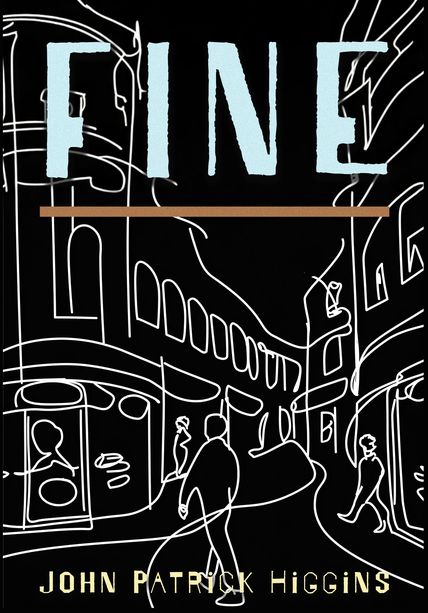 We have a copy of Hannah: The Soldier Diaries audiobook by Zoe Wright to give away!
We have a copy of Hannah: The Soldier Diaries audiobook by Zoe Wright to give away!
To win, sign up for our Free Newsletter on the right-hand side of the site and enter via the newsletter. Winner will be chosen by the end of December from subscribers who enter via the newsletter. Good luck!
 Shick expertly pulls us into Yangon life and culture through glimpses of people, streets, food vendors, colorful gardens, and ancient temples. As Etta strolls through a working-class neighborhood, she notes how “makeshift shacks are stacked one upon the other like the slipper seashells I used to collect at the beach as a child,” then passes a man who “stands in front of his shack, his longyi hiked up to his groin as he lathers soap over his bare chest and legs.”
Shick expertly pulls us into Yangon life and culture through glimpses of people, streets, food vendors, colorful gardens, and ancient temples. As Etta strolls through a working-class neighborhood, she notes how “makeshift shacks are stacked one upon the other like the slipper seashells I used to collect at the beach as a child,” then passes a man who “stands in front of his shack, his longyi hiked up to his groin as he lathers soap over his bare chest and legs.” While this book is a clear indication that Choctaws also like to tell each other scary stories, the implication of that line is that Choctaws have many stories. But when these narratives diverge from Anglo-European expectations, settlers and their descendants almost immediately force them into gothic or horror storytelling structures.
While this book is a clear indication that Choctaws also like to tell each other scary stories, the implication of that line is that Choctaws have many stories. But when these narratives diverge from Anglo-European expectations, settlers and their descendants almost immediately force them into gothic or horror storytelling structures. Foreign Attachments is beautifully written, with a great attention to detail and obvious research that brings the characters to life. Jean Rhys is a particularly interesting and tragic character in this rendition with plenty of intrigue left to the reader’s imagination, though I dare anyone to read Foreign Attachments and not give into the temptation to not only begin looking closer at Stella Bowen’s paintings but also exploring Rhys’ story and the work, not so well read these days, of Ford Madox Ford.
Foreign Attachments is beautifully written, with a great attention to detail and obvious research that brings the characters to life. Jean Rhys is a particularly interesting and tragic character in this rendition with plenty of intrigue left to the reader’s imagination, though I dare anyone to read Foreign Attachments and not give into the temptation to not only begin looking closer at Stella Bowen’s paintings but also exploring Rhys’ story and the work, not so well read these days, of Ford Madox Ford. The book is a lurid purple-prosed comic masterpiece. I have not had as much pleasure reading a deep dense novel like this since The Sot-Weed Factor, A Confederacy of Dunces, Tristam Shandy, Quixote, Auto-da-fé, Joy Williams. The lietmotif of the book is wretched comic human excess. And ambition. And language! Borshellac begins his self-transformation as a stowaway on a fishing vessel, where he ineffectually disguises himself as a man-sized perch, lolling among the mountainous heaps of fresh-caught fish.
The book is a lurid purple-prosed comic masterpiece. I have not had as much pleasure reading a deep dense novel like this since The Sot-Weed Factor, A Confederacy of Dunces, Tristam Shandy, Quixote, Auto-da-fé, Joy Williams. The lietmotif of the book is wretched comic human excess. And ambition. And language! Borshellac begins his self-transformation as a stowaway on a fishing vessel, where he ineffectually disguises himself as a man-sized perch, lolling among the mountainous heaps of fresh-caught fish. Tem lives alone in a modest house just south of Denver. Most striking when you walk in are the two walls—living room and adjoining dining room—covered with family portraits: his kids, grandkids, and great-grandkids. One senses the warmth and richness of his family that’s he’s surrounded himself with which makes his forays into darkness and horror all the more frightening and intriguing.
Tem lives alone in a modest house just south of Denver. Most striking when you walk in are the two walls—living room and adjoining dining room—covered with family portraits: his kids, grandkids, and great-grandkids. One senses the warmth and richness of his family that’s he’s surrounded himself with which makes his forays into darkness and horror all the more frightening and intriguing.  The narrative also encapsulates what it’s like to feel excluded from the community at large, calling out the societal structures in place that demean people with disabilities. Reflecting on various schools and playgrounds, De Simone observes, “We had every right to be there, but I didn’t feel like we belonged.”
The narrative also encapsulates what it’s like to feel excluded from the community at large, calling out the societal structures in place that demean people with disabilities. Reflecting on various schools and playgrounds, De Simone observes, “We had every right to be there, but I didn’t feel like we belonged.”  Leach’s Haiku varies from three lines to two and sometimes four lines. Like all good haikus the insight and the images come from observations of the natural world. In most of this collection the haiku present an observation followed by a contrast or interpretation of the observation.
Leach’s Haiku varies from three lines to two and sometimes four lines. Like all good haikus the insight and the images come from observations of the natural world. In most of this collection the haiku present an observation followed by a contrast or interpretation of the observation. We have a copy of Fine by John Patrick Higgins to give away!
We have a copy of Fine by John Patrick Higgins to give away! As her memoir shows, Kelly Bishop (formerly “Carole”) brought years of experience to the role of Emily. Those of us who were entertained by this determined fictional character will find Kelly as resolute in real life as she was in that role. Her lifelong pursuit of her dream is inspiring.
As her memoir shows, Kelly Bishop (formerly “Carole”) brought years of experience to the role of Emily. Those of us who were entertained by this determined fictional character will find Kelly as resolute in real life as she was in that role. Her lifelong pursuit of her dream is inspiring.